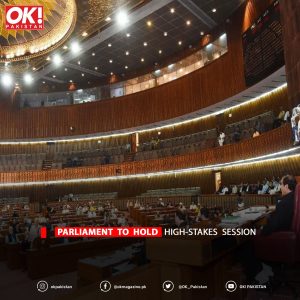The House of Representatives will hold a session with significant stakes.
Today, members of Congress will get together to try to find common ground on eight pressing concerns and map out the next steps.

ISLAMABAD: As the nation struggles to avoid default and elections are quickly approaching, the parliament is prepared to discuss eight significant issues facing the nation and make crucial decisions to uphold the state’s writ. One such issue is the former premier Imran Khan’s party’s ongoing anti-government campaign.
The primary priority is the tenuous security situation. The impending elections in Punjab and Khyber-Pakhtunkhwa and the dispute over whether the country should have elections in the two provinces first or nationwide are set to take center stage during the joint sitting of parliament, despite the absence of the term election from the agenda.
As the ruling PML-N and its allies gathered at the Prime Minister House on March 20 to discuss the current political and economic circumstances in the middle of Imran Khan and his party’s continuous anti-government defiance, the government made the decision to call the joint sitting of parliament.
The ruling coalition promised to crack down on the PTI during the six-hour meeting on Monday, asserting that the former ruling party had turned into a terrorist organization due to its involvement in attacks on state institutions like the army, judiciary, and law enforcement agencies.
It not only denounced the attacks on police and Rangers that were allegedly carried out on the PTI chairman’s orders when they went to Imran’s Zaman Park residence in Lahore and when Imran arrived with his supporters at a court in Islamabad the other day, but it also declared that crucial decisions to uphold the writ of the state would be made at the joint session of parliament on March 22 (today). At 4 PM, the joint session will start.
The joint session of parliament will discuss eight major topics, including economic policy, the Jammu and Kashmir dispute, respect for national institutions, the China-Pakistan Economic Corridor, the population increase, the effects of climate change, and foreign policy.
According to the agenda, the legislators will talk about national issues to raise awareness and forge agreement on the eight important issues.
The legislators are anticipated to address the mistakes made in the recent past and offer a plan of action on how to equip law enforcement with cutting-edge equipment to confront the threats in light of the worrying surge in terrorism.
They will also bring up the subject of periodic smear efforts launched against the institutions.
The parliament would also look into the reasons why CPEC projects were delayed, particularly during the PTI administration.
It will also reflect on the Kashmir problem because India revoked the valley’s special status.
There would also be a thorough discussion of the terrible floods and destruction they brought about across the nation.
The joint sitting would consider where the country’s interests overlap in the context of the shifting geopolitical climate in addition to the internal political landscape.
Elections and the national census are not on the agenda, but it is anticipated that the House will discuss any constitutional and legal obstacles if the elections are held separately throughout the nation.
Since being ousted by a vote of no confidence in April of last year, the PTI leader has been calling for immediate elections and holding demonstrations and protests in several locations to pressure the federal government into convening them.
Even the Punjab and K-P assemblies had been dissolved for the purpose.
The government has been resisting the demand as a result, and the relevant authorities have charged Imran and PTI leadership in numerous cases.
Additionally, the ruling coalition is working to create consensus on the idea that elections should be held concurrently once the current administration has served its full term under the constitution.
Political unrest and an ailing economy have resulted from the impasse.
Since violent incidents have increased recently around the nation, terrorism has reared its ugly head once more.
The International Monetary Fund (IMF), friendly nations, or any other state have not yet given money to cash-strapped Pakistan, adding insult to injury.
The country’s political leadership has failed to reach an agreement on important issues, including the date for the general elections, despite the fact that inflation has broken several decades’ worth of records, petroleum products are at their highest levels, and currency devaluation is at its height.
Elections must be held in Punjab and K-P within 90 days of their dissolution, according to a recent Supreme Court decision.
Although the federal government, as well as the governments of Sindh and Balochistan, have expressed their worry over the holding of elections in only two provinces, the ECP has already set April 30 as the date for elections in Punjab.
They insisted that elections be held simultaneously in the regions and the center.
According to the government, if elections are held in Punjab right away, the new provincial administration will have a say in who is elected to the National Assembly.
During the session, the ruling coalition is anticipated to enact a number of resolutions.









































